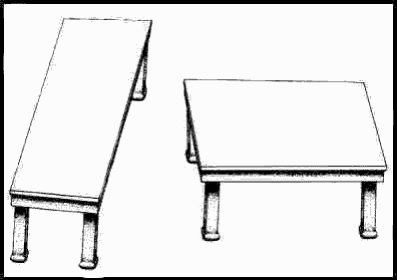Valorising Valerie - part two
In part two of Valorising Valerie, Paula Lee calls upon us to challenge what we think we know.
Posted on 20 June 2018
In one of my earlier blogs I urged Meera to be brave and to Dare to Compare her role with those different roles undertaken by men which are similar in terms of the demands made. I told Meera that she needs to think about the effort required, the physical and mental skills needed and the decision-making faculties the different roles require. Most of all though I cautioned Meera against devaluing her skills, saying that she must own her own achievements and I cited a female Head of HR and the male Head of IT an example of a potential work of equal value claim.
I apologize to Meera, and Mandy and Michelle and all the other women who read my blog (thank you by the way). It is all too easy to tell people what they should do. I am talking here about lifestyle ‘shoulds’ not legal obligations. You know the sort? The “you should organize your household admin”, “you should eat more healthily”, “you should have that difficult conversation with your mother”, “you should answer all your kid’s questions with a Mary Poppins smile and not an angry ‘because I told you so’”. Personally I am not even a fan of the word ‘should’ in this context. For me it conjures up ‘disappointment’, ‘failing’, ‘a non-acceptance of reality’. In truth the word gives me the shivers and when someone tells me I ‘should’ be doing something, (invariably something they do well of course) a little bit inside of me dies, desiccates and floats away on a muttering under my breath of ‘it’s all right for you, you have [add angelic children/sainted mother/housekeeper/an inherent appetite suppressant.’
So rather than direct that women should be “Daring to Compare” their role with that of a man, I want to take a look at why they might not be…
As ever I shall be using the 100% accurate straw poll of my six best female friends, which tells me that we women have a tendency to devalue the skills which come easily to us. If we can do something it must be easy and so our logic goes – doable by anyone; man, woman, child or goat. We do this, forgetting that it may have taken us 6 years of study and 10 years of practical experience to achieve. Once we have mastered something, the skill we once aspired to learn appears to lose its objective value for us – it is as if by the very fact we obtained it, it has now become worthless. Instead we cast our gaze over the office floor to IT, accounting, finance, legal [insert any department/profession not ours ] and think – Jeez I couldn’t do that; that’s really hard.
To counteract the above I am going to give you two things: 1) the research paper of Kruger & Dunning and 2) a couple of dining room tables. You can thank me after you have secured yourself equal pay.
I know I said I hate the word ‘should’ – happily I am comfortable with my innate hypocrisy and uniquely human capacity to hold competing opinions, and you really should read this paper UnskilledAndUnawareOfIt. If you can’t be bothered then Wikipedia provides this summary
“In the field of psychology, the Dunning–Kruger effect is a cognitive bias where people of low ability have illusory superiority, mistakenly assess their cognitive ability as greater than it is. The cognitive bias of illusory superiority comes from the metacognitive inability of low-ability people to recognize their low-ability; without the self-awareness of metacognition, low-ability people cannot objectively evaluate their actual competence or incompetence.
On the other hand, people of a high ability may incorrectly assume that tasks easy for them to do are also easy for other people to do, or that other people will have a similar understanding of subjects that they themselves are experienced in.
As described by social psychologists David Dunning and Justin Kruger in 1999, the cognitive bias of illusory superiority results from an internal illusion in people of low ability and from an external misperception in people of high ability; that is, "the miscalibration of the incompetent stems from an error about the self, whereas the miscalibration of the highly competent stems from an error about others”
Brilliant isn’t it?
So in short, Meera, Mandy, Michelle, indeed any woman reading this, if you doubt the inherent value you provide in your role because you do certain tasks easily and you think that John in IT deserves to be paid more than you because his job is ‘a bit trickier’, if you doubt your ability despite your track record telling you that ‘you’ve got this’, then to my mind you have earned the right to Dare to Compare.
Doubt is your friend – it is a sign you’re on the right track.
Still having problems believing that your work may be of equal value?
Look at the two tables below

Clearly they are different[1] – you can see that, everyone can see that.
Grab a bit of tracing paper, or better yet if you are disorganized with your household admin, grab a screwed- up window envelope from the bottom of your bag and use the tracing paper in that (as I did when I first saw this). Mark out the table top of table one on the tracing paper and when done transpose the tracing to table two.
WOWZERS!! Quick, do it again.
Now take the tracing paper away and look again at the tables, they still appear different don’t they? So even though you know their scale is equal, you cannot see it can you? Personal, direct empirical knowledge is not helping you to see things accurately.
This is an important point; if you doubt the value of your role to the business, think of the Dunning-Kruger effect, and if you cannot see how your role could possibly be of equal value to John’s – do not assume that you’re right, think table tops . Actually go further – know that you are probably mistaken.
Remember the final word on which roles are of equal value is not mine, nor yours, nor your employers; it belongs to the Employment Tribunal, who in turn relies on the skills and experience of independent experts. Experts trained to see roles and the tasks they are composed up of, objectively. Don’t let your doubt, or your certainty be a barrier to you receiving equal pay for work of equal value.
Right – now I Dare you to Compare.


